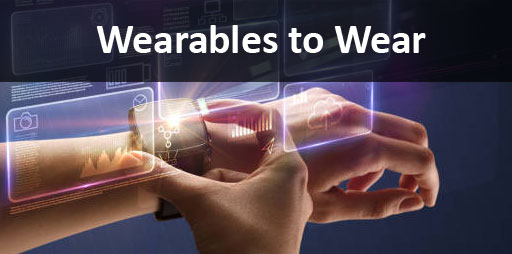Modern day technology, what will they think of next? Perhaps your shoe will vibrate and put you in the right direction when you have lost your way on the walking trail? Don’t forget to charge them up the night before. Or how about a mood shirt that changes colors so you know who to avoid when they are upset? Can I get an order of those right here? If you’d asked me a decade ago where technology would be today, I wouldn’t have predicted wearable devices could save lives, or help you better understand your fertility by monitoring your cycles.
Wearables have become a standard part of life for many. Widely available, and some inexpensive, these devices are helping people keep tabs on their health. Ranging from watches which can help monitor your heart rate to reproductive cycle trackers, sleep monitors, and devices to track changes in body temperature; these devices aid in the transition of care from the clinic to the home.
With heart disease being the leading cause of death for both men and women you might want to consider getting a smart watch. Your watch will alert you if it detects an irregular heart rate. Many people who experience a heart attack experience flu-like symptoms. You can feel weak, dizzy, and nauseated. One minute you're fine and then bam your watch alerts you your heart rate is high. Having the technology to track your vitals could help you detect a potential heart attack and prompt you to seek medical help as soon as possible, rather than going home to bed in hopes to sleep it off. If you have a hard fall and your watch has fall detection it will sound an alarm and display an SOS. You can click off the alert if you are okay or notify emergency services.
Did you know smart watches can be used to monitor Parkinson’s disease by analyzing tremor and balance dysfunctions? Yep, there is an app for that. There are even smart watches developed to monitor your glucose by monitoring certain components from your body's sweat.
If you're having trouble getting pregnant. There is a bracelet which tracks your most fertile days in real time while you sleep. It works using algorithms with body temperature, heart rate, sleep, and more. You could also use this in addition to your birth control if you’re trying to avoid pregnancy.
Another little nice piece of technology is a Bluetooth thermometer skin patch to monitor your child’s temperature while at home. I wish I had this when my son had pneumonia at six months old. I could have received a phone alert regarding dangerous temperatures while sleeping at night.
Wearables are continually being developed for the healthcare industry, to gather continual data which could be missed while in the clinic setting. There are various monitoring devices used which monitor heart rate, blood pressure, and skin temperature to extract clinically relevant information. The gathering of data on a regular basis might provide your doctor with information regarding any abnormalities.
It is important to remember these products offer data, not a diagnosis or treatment. There is also a loophole with wearables. They have to be worn, charged, and have to be used as directed so the data collected is as accurate as possible.
Author: Jennie Welter
Share